
Gwangju: The Heart of Korean Culture and History
Gwangju, a vibrant city in South Korea, is known for its rich cultural heritage and historical significance. It is a place where tradition meets modernity, offering tourists a unique experience of Korea's past and present. The city played a crucial role in the country's fight for democracy, making it a symbol of resilience and freedom. Gwangju is home to numerous museums, galleries, and cultural centers, showcasing the region's artistic achievements. The Gwangju Biennale, an internationally renowned contemporary art exhibition, attracts artists and art lovers from all over the world. For history enthusiasts, the May 18th National Cemetery is a poignant reminder of the Gwangju Uprising, a pivotal moment in South Korea's democratic movement. Nature lovers will find solace in Gwangju's beautiful parks and scenic sites. Mudeungsan National Park offers breathtaking views and hiking trails, perfect for those who enjoy outdoor activities. The city is also famous for its culinary delights, with traditional Korean dishes that will tantalize your taste buds. From street food to fine dining, Gwangju's food scene is a gastronomic adventure waiting to be explored.
Local tips in Gwangju
- Visit during the Gwangju Biennale to experience world-class contemporary art.
- Spend a day hiking at Mudeungsan National Park for stunning natural views.
- Don't miss the May 18th National Cemetery to understand the city's role in South Korea's democratic movement.
- Try local delicacies at Yangdong Market for an authentic taste of Gwangju's culinary offerings.
- Use public transportation; it's efficient and the best way to get around the city.
- Learn a few basic Korean phrases to communicate better with locals.
Neighbourhoods in Gwangju
Gwangju: The Heart of Korean Culture and History
Gwangju, a vibrant city in South Korea, is known for its rich cultural heritage and historical significance. It is a place where tradition meets modernity, offering tourists a unique experience of Korea's past and present. The city played a crucial role in the country's fight for democracy, making it a symbol of resilience and freedom. Gwangju is home to numerous museums, galleries, and cultural centers, showcasing the region's artistic achievements. The Gwangju Biennale, an internationally renowned contemporary art exhibition, attracts artists and art lovers from all over the world. For history enthusiasts, the May 18th National Cemetery is a poignant reminder of the Gwangju Uprising, a pivotal moment in South Korea's democratic movement. Nature lovers will find solace in Gwangju's beautiful parks and scenic sites. Mudeungsan National Park offers breathtaking views and hiking trails, perfect for those who enjoy outdoor activities. The city is also famous for its culinary delights, with traditional Korean dishes that will tantalize your taste buds. From street food to fine dining, Gwangju's food scene is a gastronomic adventure waiting to be explored.
When is the best time to go to Gwangju?
Iconic landmarks you can’t miss
1913 Songjeong Station Market
Explore the vibrant 1913 Songjeong Station Market in Gwangju, a hub of traditional crafts, local cuisine, and rich cultural experiences waiting to be discovered.
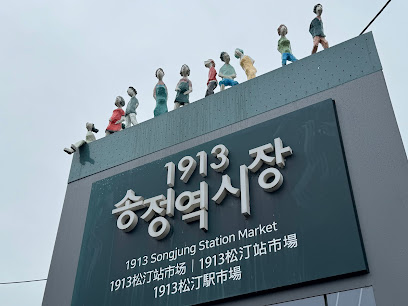
Gwangju National Science Museum
Discover the marvels of science at the Gwangju National Science Museum, where education meets entertainment in a captivating environment.
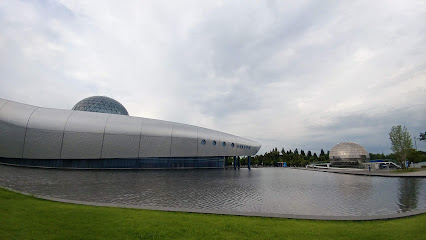
Mudeungsan National Park
Explore the breathtaking landscapes and rich biodiversity of Mudeungsan National Park, a nature lover's paradise near Gwangju, South Korea.
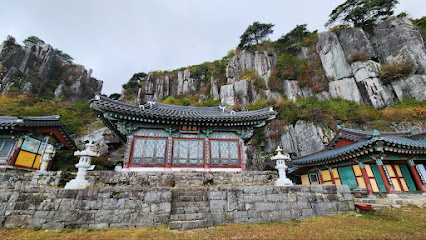
Gwangju National Museum
Discover Korea's rich cultural heritage at Gwangju National Museum, a leading destination for art and history enthusiasts.
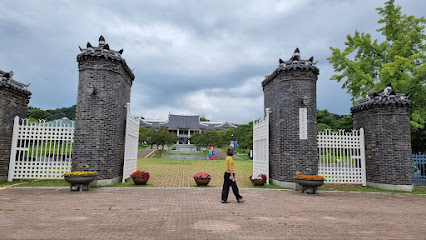
Penguin Village
Explore Penguin Village, a whimsical tourist attraction in Gwangju, South Korea, featuring unique art installations and enchanting photo opportunities.
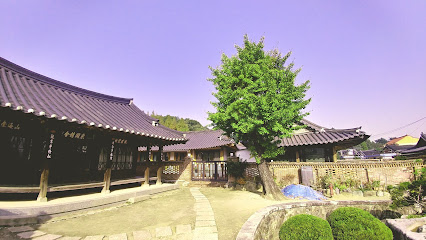
Gwangju Culture & Arts Center
Discover the cultural gem of Gwangju, where performing arts and visual creativity come alive at the Gwangju Culture & Arts Center.
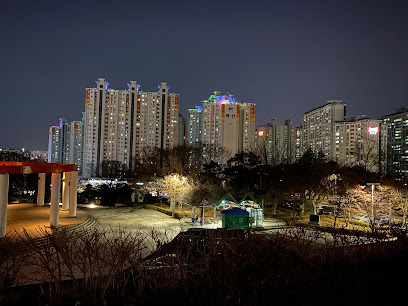
Daein Market
Explore the vibrant Daein Market in Gwangju, a cultural hotspot for delicious street food, unique crafts, and local traditions.
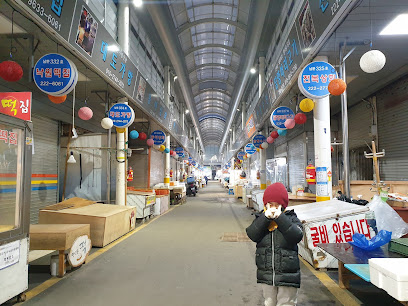
Gwangju Museum of Art
Discover contemporary art and cultural heritage at the Gwangju Museum of Art, a vibrant destination for art enthusiasts in South Korea.
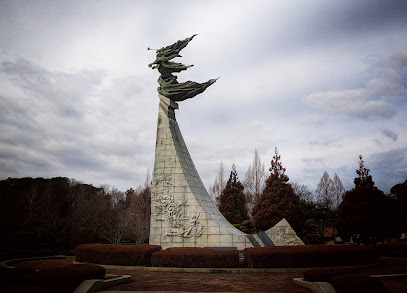
Sajik Park Observatory
Discover breathtaking vistas and tranquil landscapes at Sajik Park Observatory, the premier observation deck in Gwangju, South Korea.
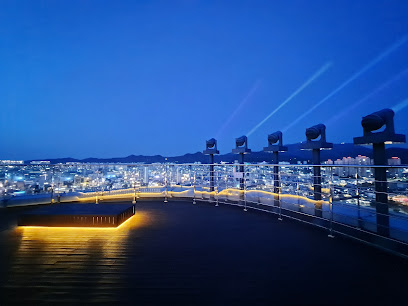
Gwangju Yangdong Market
Experience the vibrant culture and culinary delights of Gwangju at Yangdong Market, a must-visit for food lovers and culture seekers alike.
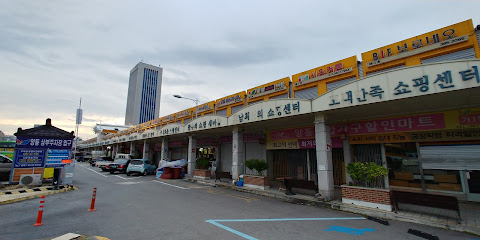
Jungwoe Park
Explore the tranquil beauty of Jungwoe Park in Gwangju, a perfect retreat for relaxation, picnics, and enjoying nature amidst vibrant flora.
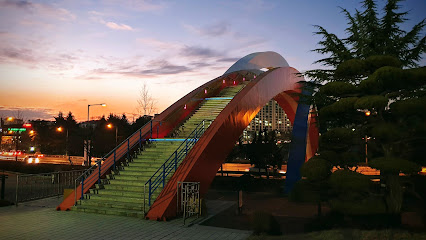
5.18 Democracy Square
Discover the rich history and enduring spirit of democracy at 5.18 Democracy Square, a must-visit landmark in Gwangju, South Korea.
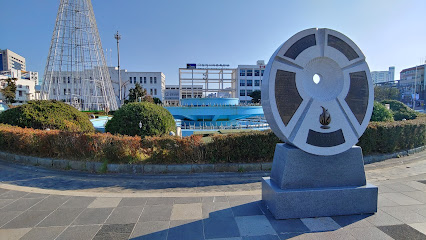
5·18 Memorial Park
Explore the serene 5·18 Memorial Park in Gwangju, a tribute to the fight for democracy, where history meets tranquility amidst beautiful landscapes.
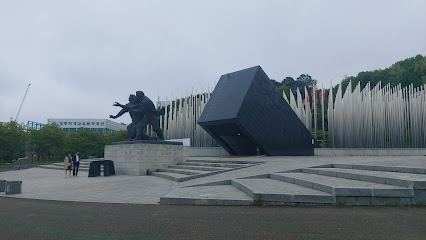
송산유원지
Discover the vibrant culture and delicious cuisine of Songsan-dong in Gwangju, a must-visit tourist attraction in South Korea.
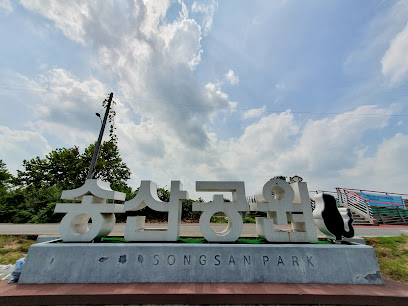
Jeonil Building 245
Explore the Jeonil Building in Gwangju, a historical landmark that narrates the rich cultural heritage and transformative history of South Korea.
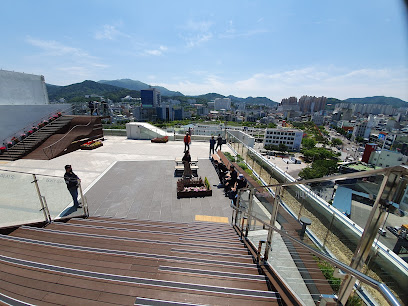
Unmissable attractions to see
Naejangsan National Park
Explore the breathtaking landscapes, vibrant foliage, and rich biodiversity of Naejangsan National Park in Jeonbuk State, South Korea.
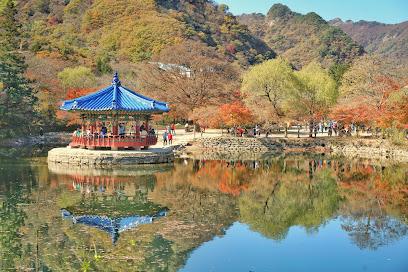
The Gwangju Ecological Lake Park
Explore the lush beauty of Gwangju Ecological Lake Park, a serene escape featuring walking trails, a tranquil lake, and vibrant flora in Buk-gu.
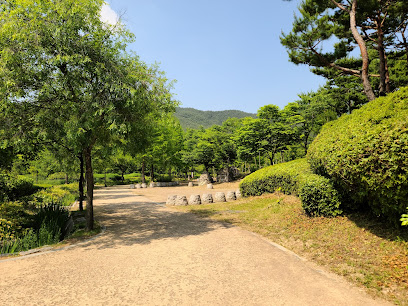
Soswaewon Garden
Explore the enchanting beauty of Soswaewon Garden, a serene oasis in Damyang-gun, where nature and tradition intertwine.
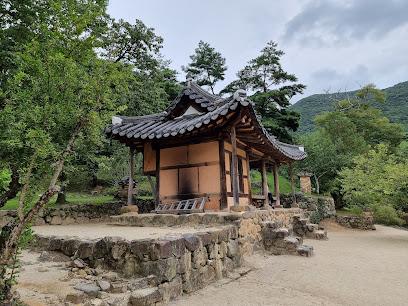
Songgwangsa Temple
Explore the tranquil beauty and spiritual heritage of Songgwangsa Temple in Jeollanam-do, a serene escape for tourists seeking peace and reflection.
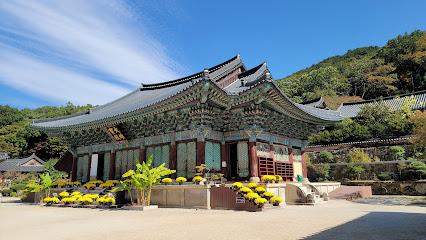
Gwangju National Science Museum
Discover the wonders of science at Gwangju National Science Museum, a family-friendly attraction with interactive exhibits and engaging experiences for all ages.
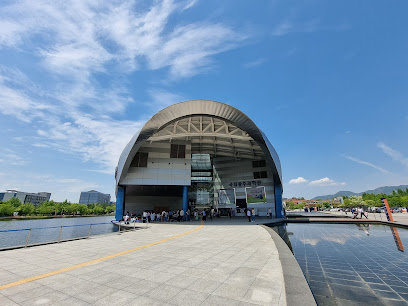
풍암 호수공원
Explore Pungam Park in Gwangju, a beautiful urban oasis with lush greenery, art installations, and serene lakes, perfect for relaxation and cultural experiences.
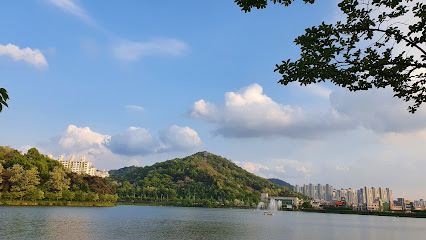
Uncheon Reservoir
Discover the tranquility of Uncheon Reservoir, a serene escape in Gwangju surrounded by lush nature and stunning waterside views.
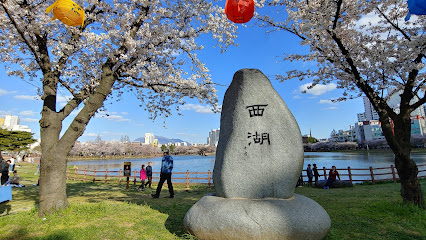
Mudeungsan National Park
Explore the breathtaking landscapes and rich biodiversity of Mudeungsan National Park, a serene natural escape in Gwangju, South Korea.
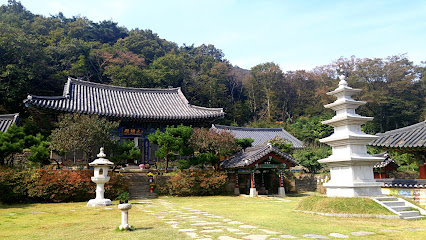
Ssangam Park
Discover the natural beauty and tranquility of Ssangam Park in Gwangju, South Korea - a perfect escape for tourists seeking relaxation and fresh air.
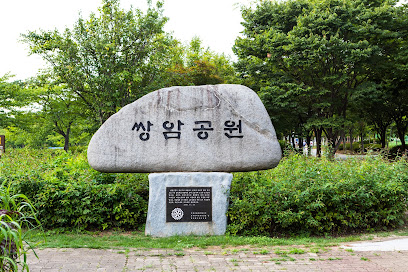
Gwangju National Museum
Discover Korea's cultural heritage at Gwangju National Museum, a must-visit destination for art and history lovers in Gwangju.
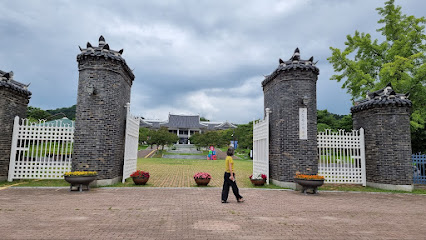
Damyang Gwanbangjerim Forest
Discover the serene beauty of Damyang Gwanbangjerim Forest, a natural paradise in Jeollanam-do, perfect for relaxation and exploration.
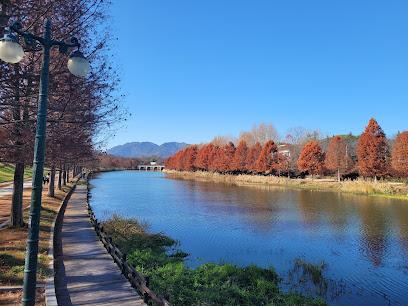
Uchi Park Zoo
Explore Uchi Park Zoo in Gwangju, a captivating blend of nature and wildlife perfect for families and nature enthusiasts alike.
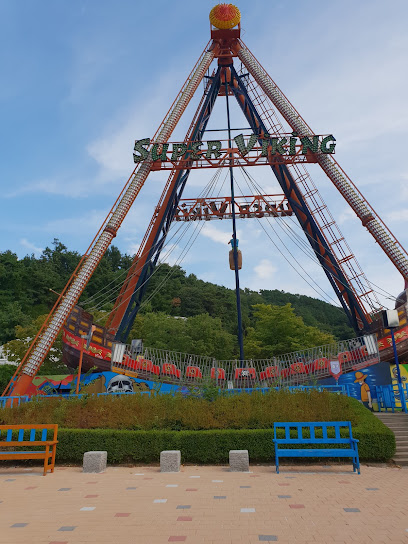
Sangmu Citizen's Park
Explore the serene beauty and vibrant culture of Sangmu Citizen's Park, a perfect urban oasis in Gwangju for relaxation and leisure.
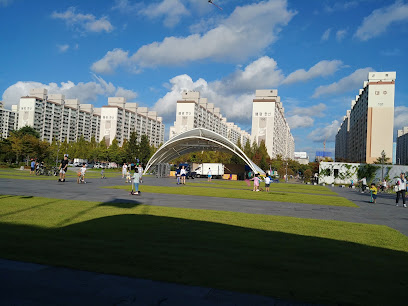
Gwangju Museum of Art
Explore the Gwangju Museum of Art, a cultural haven showcasing contemporary and traditional Korean art in a tranquil setting.
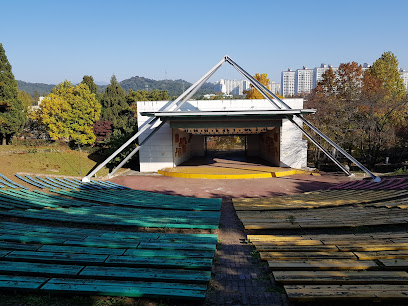
Sajik Park Observatory
Experience breathtaking views of Gwangju at Sajik Park Observatory, a serene escape offering stunning panoramas and tranquil natural beauty.
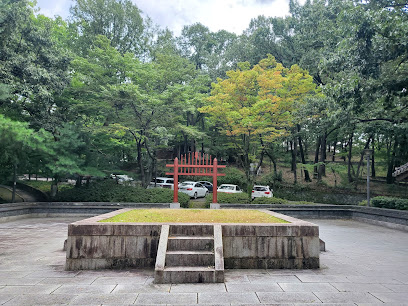
Essential places to dine
Songjeong Tteokgalbi
Experience authentic Korean flavors at Songjeong Tteokgalbi in Gwangju—home of delicious grilled short rib patties served with love.
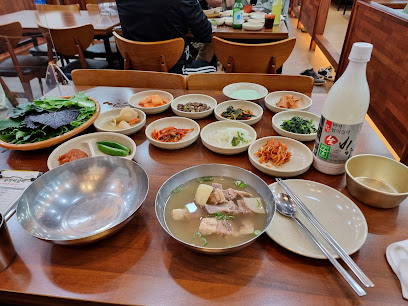
수자타
Experience the best of plant-based dining at 수자타 in Gwangju – where every dish is crafted with care from fresh local ingredients.
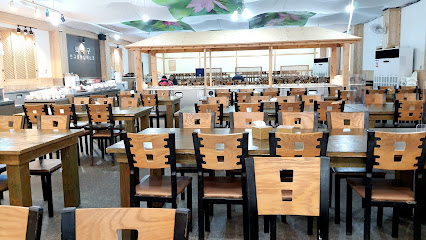
Minsokchon
Experience the authentic flavors of Korea at Minsokchon - Gwangju's premier destination for delicious ribs and warm hospitality.
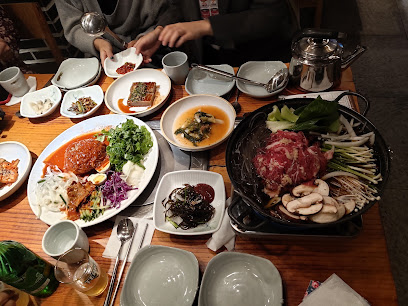
옥과한우촌 상무점
Discover exquisite hanwoo beef dishes at 옥과한우촌 상무점 in Gwangju – a culinary gem blending tradition and flavor.
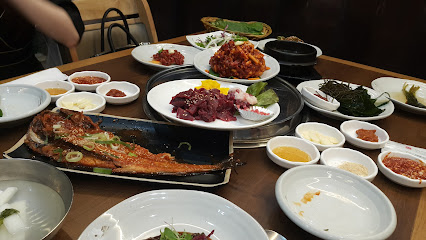
솔빛마루
Savor authentic Korean flavors at 솔빛마루 in Gwangju - where tradition meets taste in every dish.
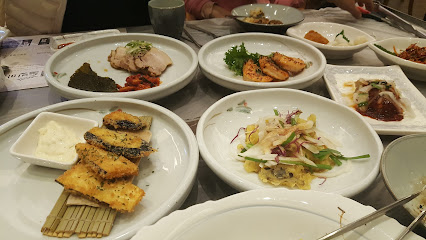
Mimiwon
Discover authentic Korean cuisine at Mimiwon in Gwangju, where traditional flavors meet exceptional service in a vibrant atmosphere.
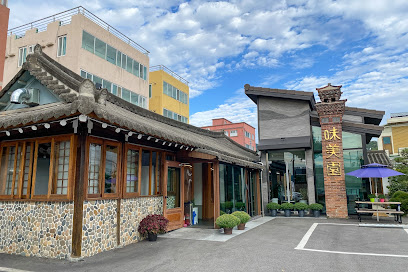
매드포갈릭 광주광천점
Discover the exquisite fusion of Italian cuisine and garlic at Mad for Garlic in Gwangju—where every dish tells a flavorful story.
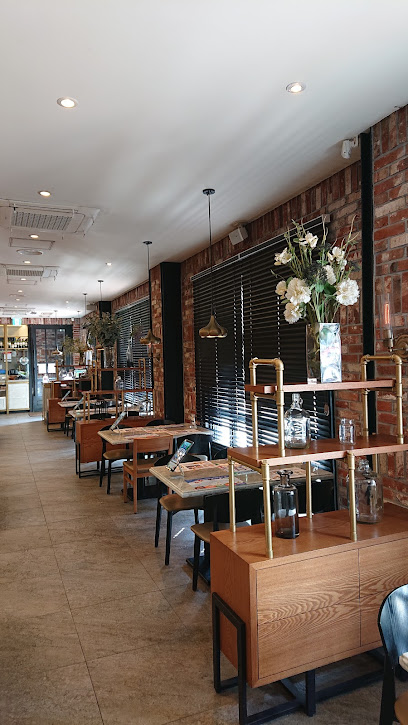
Hahaega
Discover Hahaega in Gwangju - where traditional unagi meets exceptional service for an unforgettable dining experience.
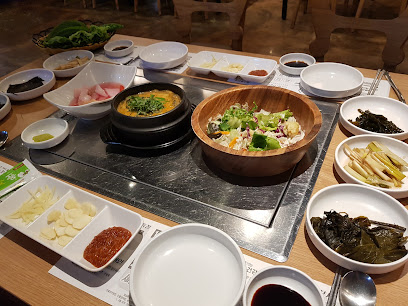
퍼니스 카페앤라운지
Experience the vibrant culinary scene at Funis Cafe & Lounge in Gwangju - where delicious food meets modern ambiance.
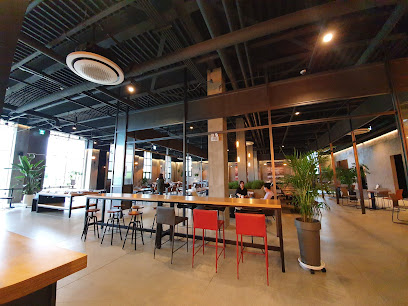
Mac Mun Dong
Discover the charm of Mac Mun Dong in Gwangju—where delightful brunches meet cozy cafe vibes in South Korea's vibrant culinary scene.
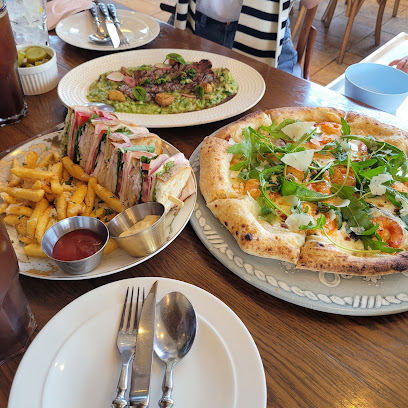
Le Ciel Blue
Discover the flavors of Korea at Le Ciel Blue, where traditional cuisine meets modern dining in the heart of Gwangju.
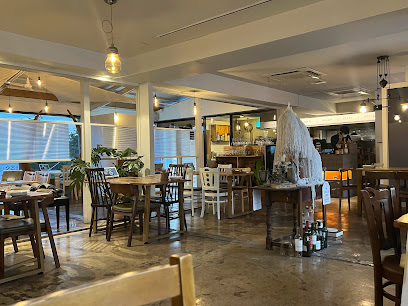
Halal Turkistan Restaurant
Discover the rich flavors of multicultural halal cuisine at Halal Turkistan Restaurant in Gwangju.
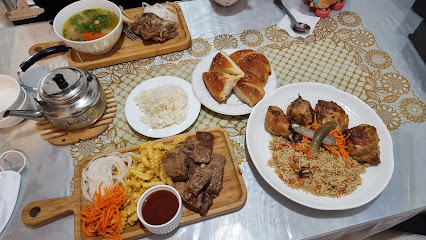
Gwangju Restaurant
Experience authentic Korean cuisine at Gwangju Restaurant, where tradition meets taste in every delightful dish.
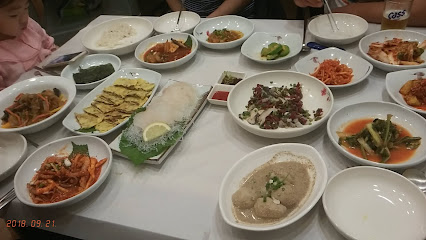
카페바리에
Discover the perfect blend of Italian cuisine and artisanal coffee at Café Barie in Gwangju – where flavor meets comfort.
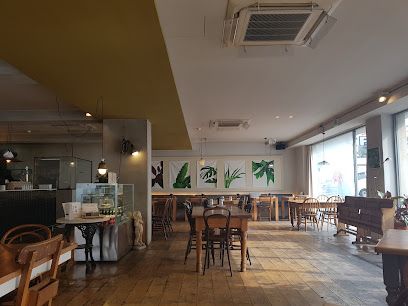
Hanok Restaurant
Experience authentic Korean cuisine at Hanok Restaurant in Gwangju - where tradition meets flavor in every dish.
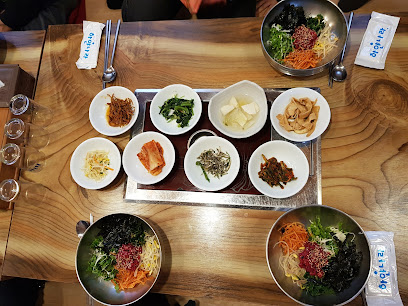
Markets, malls and hidden boutiques
Gwangju Shinsegae Department Store
Discover the beauty of South Korea at Gwangju Shinsegae Department Store, a premier destination for cosmetics, perfumes, and luxury beauty products.
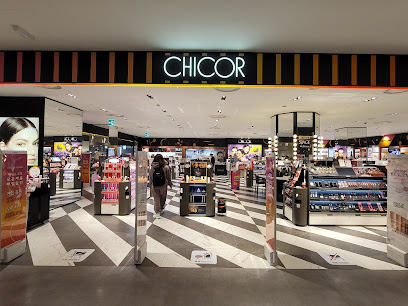
1913 Songjeong Station Market
Explore the vibrant 1913 Songjeong Station Market in Gwangju for an authentic taste of Korean culture, food, and handcrafted treasures.
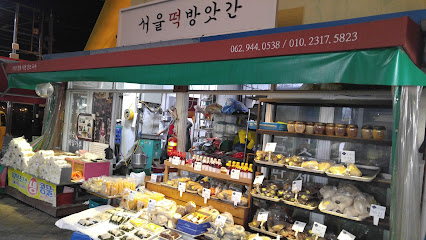
Emart Gwangju
Explore Emart Gwangju, the hypermarket offering a blend of local culture and modern shopping convenience in the heart of Gwangju.
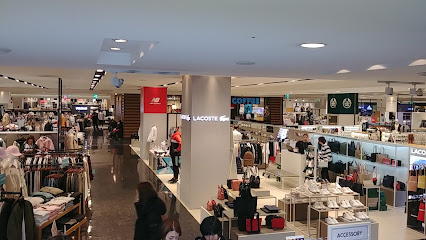
Lotte Department Store, Gwangju Branch
Discover a shopping paradise at Lotte Department Store, Gwangju, featuring an array of brands, dining options, and local delicacies.
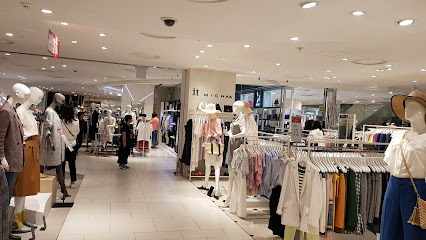
Penguin Village
Experience the whimsical charm of Penguin Village in Gwangju, filled with colorful art and unique souvenirs for every traveler.
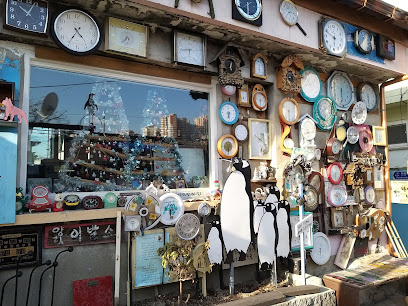
Gwangju Yangdong Market
Explore Gwangju Yangdong Market for an authentic taste of local cuisine and culture, a vibrant hub for food lovers and souvenir seekers alike.
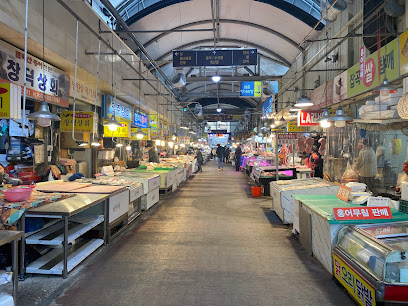
Gwangju Outlet
Discover unbeatable deals and a vibrant shopping experience at Gwangju Outlet, the ultimate destination for fashion and lifestyle in South Korea.
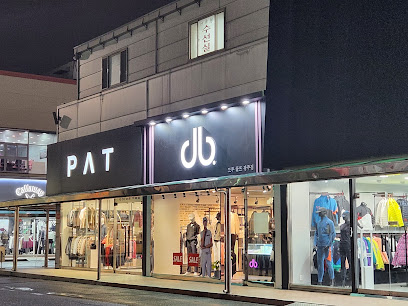
National Asian Culture Center
Discover the National Asian Culture Center: A vibrant hub of culture, art, and family fun in Gwangju, South Korea.
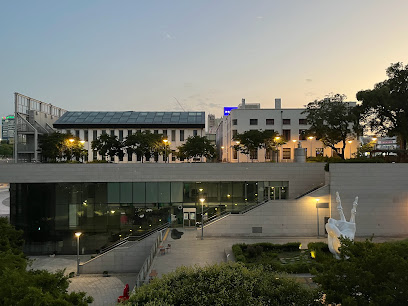
Kyobo Bookstore Gwangju Sangmu
Discover a world of literature and culture at Kyobo Bookstore Gwangju Sangmu, the ultimate destination for book lovers and tourists in Gwangju.
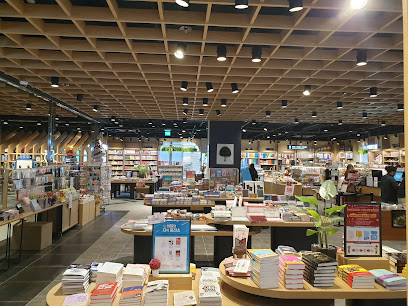
ZARA Gwangju branch
Discover the latest fashion trends at ZARA Gwangju, where style meets affordability in the heart of Dong-gu.
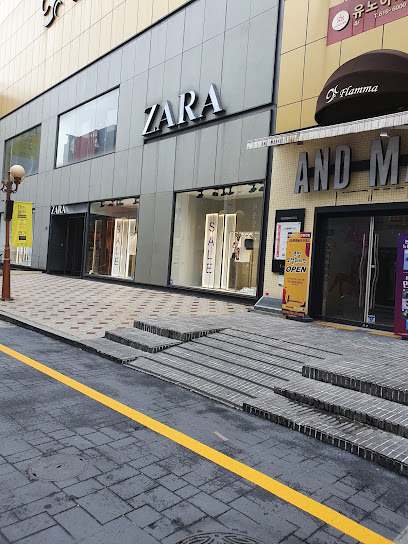
Dongmyeong-dong Café Street
Discover the vibrant café culture of Dongmyeong-dong Café Street in Gwangju, where unique shops and delicious local delicacies await.
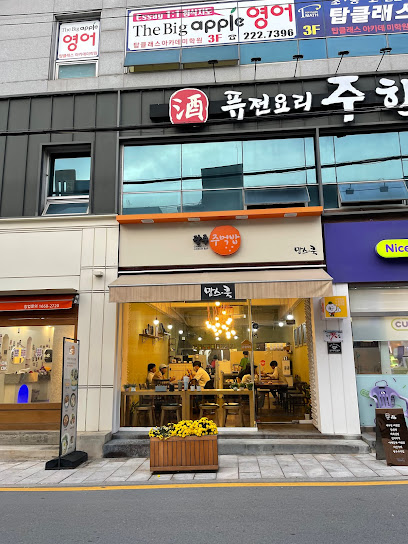
Gwangju Art Street
Discover Gwangju Art Street, a vibrant hub of creativity featuring stunning street art, galleries, and local crafts in the heart of Gwangju, South Korea.
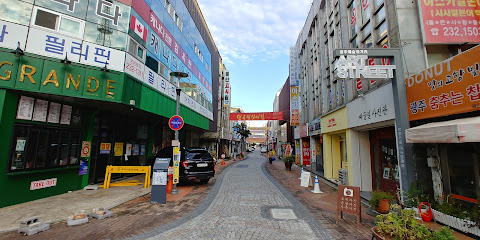
Louis Vuitton
Explore the epitome of luxury shopping at Louis Vuitton in Gwangju, where fashion meets sophistication.
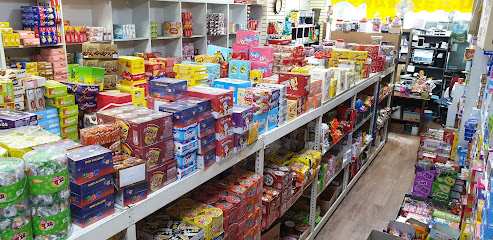
Beautiful Store Gwangju Branch
Explore the Beautiful Store Gwangju Branch: A sustainable second-hand shopping haven where every purchase contributes to social welfare.
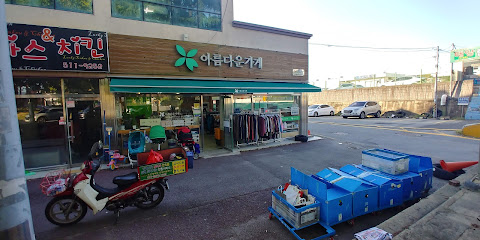
비와이씨
Explore 비와이씨, Gwangju's top lingerie destination, offering stylish and comfortable underwear for all tastes in a welcoming atmosphere.
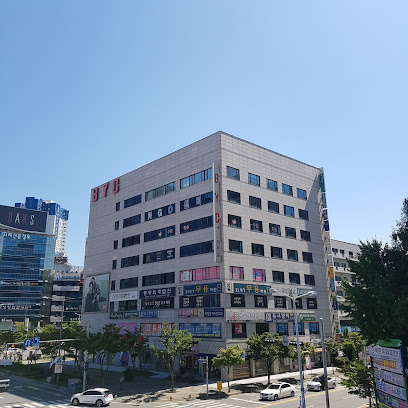
Essential bars & hidden hideouts
시선 광주상무점
Discover the energy of Gwangju's nightlife at 시선 광주상무점, a bar where delicious drinks and a lively atmosphere await every traveler.
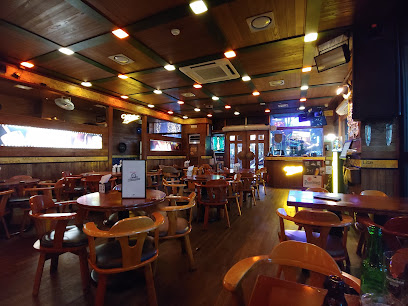
In The Grove Jazz Bar
Discover the soulful sounds and vibrant atmosphere of In The Grove Jazz Bar, Gwangju's prime destination for live jazz music and community.
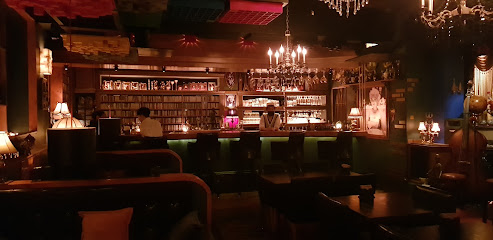
리비어밤코
Discover Gwangju's nightlife at 리비어밤코, a vibrant bar offering a mix of local drinks, upbeat music, and a welcoming atmosphere.
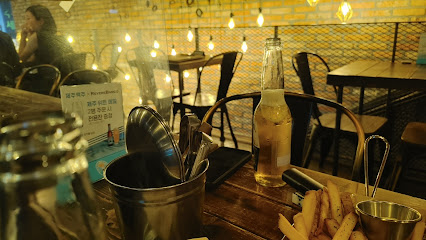
€Asia lounge bar
Discover the vibrant nightlife at €Asia Lounge Bar in Gwangsan-gu, Gwangju - where cocktails, music, and great company meet.
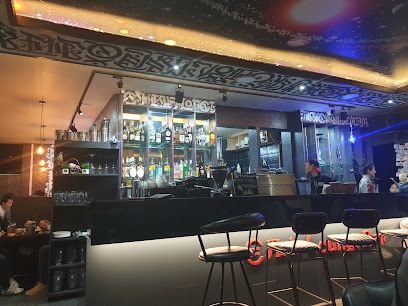
Amble
Discover the heart of Gwangju's nightlife at Amble Bar, where local flavors meet vibrant social energy.
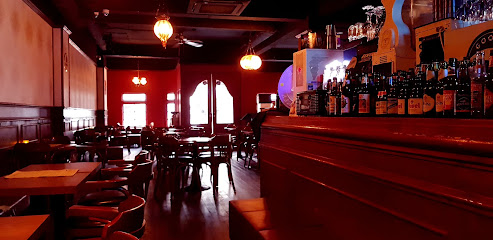
칵테일바 쉐이커
Experience the vibrant nightlife at Cocktail Bar Shaker in Gwangju, where expertly crafted cocktails and a lively atmosphere await.
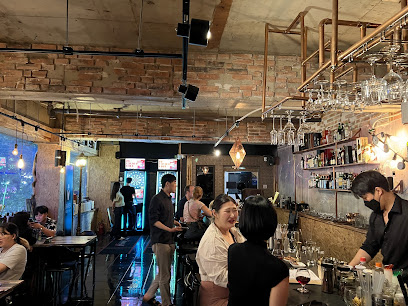
DM Lounge
Discover the vibrant nightlife at DM Lounge in Gwangju, where exquisite cocktails meet lively DJ performances and a premier wine club ambiance.
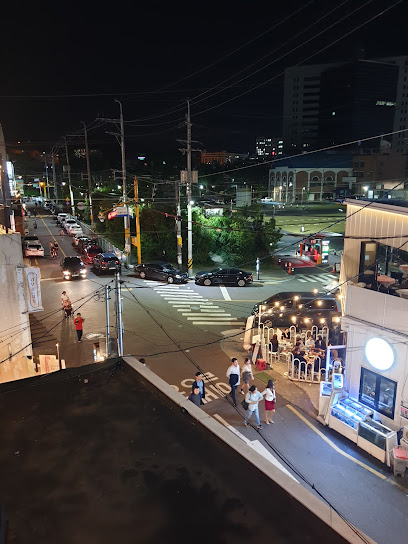
Crown HOF Gwangju Hanam
Discover the vibrant nightlife at Crown HOF Gwangju Hanam, a premier bar in Gwangju offering a lively atmosphere and a diverse drink selection.
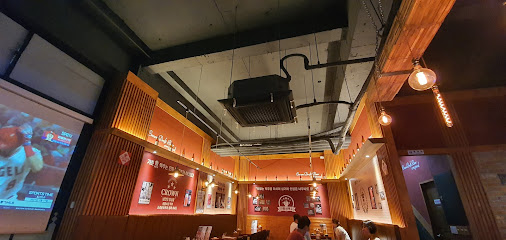
Keibeun
Experience Gwangju's vibrant nightlife at Keibeun, a cocktail bar known for its exquisite drinks and inviting ambiance.
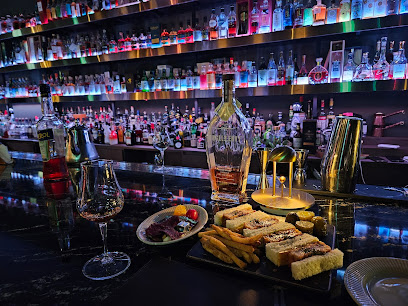
blissout_sangmu
Experience the vibrant nightlife at Blissout Sangmu, Gwangju's top cocktail bar known for its innovative drinks and inviting atmosphere.
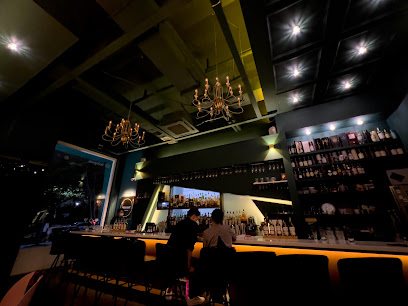
Jebseu
Experience the enchanting ambiance and exquisite wine selection at Jebseu, the premier wine bar in Gwangju's Buk-gu district.
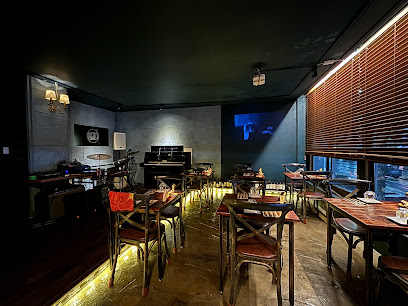
파이널 나인 광주
Discover the electrifying nightlife at 파이널 나인 광주, Gwangju's premier bar for cocktails, music, and unforgettable moments.
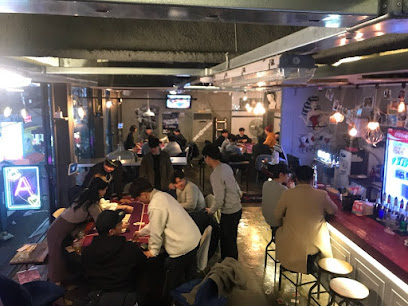
루프탑엔라운지
Discover the vibrant nightlife of Gwangju at 루프탑엔라운지, where expertly crafted cocktails meet stunning rooftop views.

클럽매그넘
Discover Gwangju's nightlife at 클럽매그넘, a vibrant bar offering an extensive drink menu and an energetic atmosphere for an unforgettable night out.

Local Phrases
-
- Hello안녕하세요
[annyeonghaseyo] - Goodbye안녕히 가세요
[annyeonghi gaseyo] - Yes네
[ne] - No아니요
[aniyo] - Please/You're welcome부탁합니다
[butakhamnida] - Thank you감사합니다
[gamsahamnida] - Excuse me/Sorry죄송합니다
[joesonghamnida] - How are you?어떻게 지내세요?
[eotteoke jinaeseyo?] - Fine. And you?잘 지내요. 당신은요?
[jal jinaeyo. dangsineunyo?] - Do you speak English?영어 할 수 있어요?
[yeongeo hal su isseoyo?] - I don't understand이해하지 못해요
[ihaehaji mothaeyo]
- Hello안녕하세요
-
- I'd like to see the menu, please메뉴를 보고 싶어요
[menyureul bogo shipeoyo] - I don't eat meat고기를 먹지 않아요
[gogireul meokji anayo] - Cheers!건배!
[geonbae!] - I would like to pay, please계산하고 싶어요
[gyesanhago shipeoyo]
- I'd like to see the menu, please메뉴를 보고 싶어요
-
- Help!도와주세요!
[dowajuseyo!] - Go away!가세요!
[gaseyo!] - Call the Police!경찰을 불러주세요!
[gyeongchareul bulleojuseyo!] - Call a doctor!의사를 불러주세요!
[uisareul bulleojuseyo!] - I'm lost길을 잃었어요
[gireul ilheosseoyo] - I'm ill아파요
[apayo]
- Help!도와주세요!
-
- I'd like to buy...사고 싶어요
[sago shipeoyo] - I'm just looking구경만 하고 있어요
[gugyeongman hago isseoyo] - How much is it?얼마에요?
[eolmaeyo?] - That's too expensive너무 비싸요
[neomu bissayo] - Can you lower the price?가격을 낮출 수 있어요?
[gageogeul natchul su isseoyo?]
- I'd like to buy...사고 싶어요
-
- What time is it?지금 몇 시에요?
[jigeum myeot sieyo?] - It's one o'clock한 시에요
[han sieyo] - Half past (10)십 시 반
[sip si ban] - Morning아침
[achim] - Afternoon오후
[ohu] - Evening저녁
[jeonyeok] - Yesterday어제
[eoje] - Today오늘
[oneul] - Tomorrow내일
[naeil] - 1일
[il] - 2이
[i] - 3삼
[sam] - 4사
[sa] - 5오
[o] - 6육
[yuk] - 7칠
[chil] - 8팔
[pal] - 9구
[gu] - 10십
[sip]
- What time is it?지금 몇 시에요?
-
- Where's a/the...?어디에...가 있어요?
[eodie...ga isseoyo?] - What's the address?주소가 뭐에요?
[jusoga mwoeyo?] - Can you show me (on the map)?지도로 보여주세요
[jidoro boyeojuseyo] - When's the next (bus)?다음 버스는 언제에요?
[daeum beoseuneun eonjeeyo?] - A ticket (to ....)표 한 장 (....으로)
[pyo han jang (....euro)]
- Where's a/the...?어디에...가 있어요?
History of Gwangju
-
Gwangju, located in the southwestern corner of South Korea, has roots that stretch back to ancient times. It began as a small settlement and gradually developed into an important regional center during the Baekje Kingdom (18 BCE – 660 CE). The city’s name, Gwangju, translates to 'City of Light,' reflecting its historical significance as a cultural and economic hub.
-
From 1910 to 1945, Korea was under Japanese colonial rule, and Gwangju was no exception. During this period, the city underwent significant modernization, including the construction of infrastructure such as railways and schools. However, this era was also marked by harsh repression and exploitation, which left a lasting impact on the local populace.
-
One of the most significant events in Gwangju's history is the May 18 Democratic Uprising in 1980. Citizens of Gwangju rose against the military dictatorship of Chun Doo-hwan, demanding democracy and human rights. The uprising was brutally suppressed, resulting in numerous casualties. This event is commemorated annually and has left an indelible mark on the city's identity.
-
In recent decades, Gwangju has transformed into a vibrant metropolis known for its cultural and artistic contributions. It hosts the Gwangju Biennale, one of Asia’s most prestigious art festivals, attracting artists and visitors from around the world. The city is also a center for education and technology, with numerous universities and research institutions.
-
Gwangju is renowned for its rich culinary heritage. The city is often considered the heart of traditional Korean cuisine, offering a variety of dishes such as kimchi, tteok-galbi (grilled short rib patties), and various types of jeon (Korean pancakes). The local markets, like the Yangdong Market, are bustling centers where one can experience authentic flavors and cooking techniques.
Gwangju Essentials
-
Gwangju is well connected by air, rail, and road. The nearest airport is Gwangju Airport, which has domestic flights from major cities like Seoul and Jeju. For international travelers, the nearest major airport is Incheon International Airport, from where you can take a domestic flight or a KTX high-speed train to Gwangju. The KTX train from Seoul to Gwangju takes approximately 2 hours. Alternatively, buses run frequently from various cities, making Gwangju accessible from almost anywhere in South Korea.
-
Gwangju has an efficient public transportation system that includes buses, taxis, and a subway line. The subway has one line that covers major parts of the city. Buses are frequent and cover both urban and rural areas. Taxis are relatively inexpensive and can be hailed on the street or booked via apps. For those who prefer driving, car rental services are available, but be aware that traffic can be heavy during peak hours.
-
The official currency in South Korea is the South Korean Won (KRW). Credit cards are widely accepted in Gwangju, including in hotels, restaurants, and shops. However, it is advisable to carry some cash for smaller establishments and street vendors. ATMs are readily available throughout the city, and most offer English language options.
-
Gwangju is generally a safe city for tourists. However, as with any urban area, it's important to stay vigilant. Areas around bus terminals and train stations can be crowded, so keep an eye on your belongings. Although Gwangju does not have specific high-crime areas targeting tourists, it is always wise to avoid walking alone late at night in unfamiliar places.
-
In case of emergency, dial 119 for immediate assistance (fire, medical emergencies) or 112 for police. Gwangju has several hospitals and clinics that offer emergency services. It is advisable to have travel insurance that covers medical emergencies. Pharmacies are plentiful and can provide over-the-counter medications for minor health issues.
-
Fashion: Do dress modestly, especially when visiting temples or religious sites. Avoid overly revealing clothing. Religion: Do show respect when visiting temples and religious sites. Remove your shoes before entering and maintain a quiet demeanor. Public Transport: Do give up your seat to elderly passengers and don't talk loudly on the phone. Eating & Drinking: Do try local dishes and accept food offerings graciously. Don't leave food on your plate, as it is considered wasteful.
-
To experience Gwangju like a local, visit the Yangdong Market for fresh produce and traditional Korean goods. Engage with locals who are often friendly and willing to share stories about the city's history and culture. Don't miss the Gwangju Biennale, an international contemporary art exhibition held every two years. For a unique experience, visit the 5.18 Memorial Park, dedicated to the Gwangju Uprising, to understand the city's historical significance.
Trending Landmark in Gwangju
-
1913 Songjeong Station Market
-
Gwangju National Science Museum
-
Mudeungsan National Park
-
Gwangju National Museum
-
Penguin Village
-
Gwangju Culture & Arts Center
-
Daein Market
-
Gwangju Museum of Art
-
Sajik Park Observatory
-
Gwangju Yangdong Market
-
Jungwoe Park
-
5.18 Democracy Square
-
5·18 Memorial Park
-
송산유원지
-
Jeonil Building 245
Nearby Cities to Gwangju
-
Things To Do in Suncheon
-
Things To Do in Mokpo
-
Things To Do in Jeonju
-
Things To Do in Daejeon
-
Things To Do in Daegu
-
Things To Do in Jeju City
-
Things To Do in Busan
-
Things To Do in Ulsan
-
Things To Do in Gyeongju
-
Things To Do in Andong
-
Things To Do in Suwon
-
Things To Do in Pohang
-
Things To Do in Incheon
-
Things To Do in Seoul
-
Things To Do in Chuncheon

















